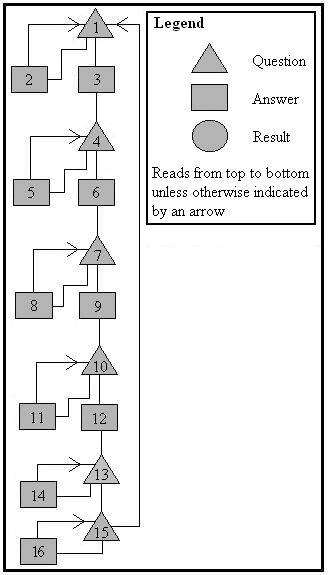

| 1. | Is there any new ground to be broken within the existing paradigm? | |
| YES | 2. | Continue doing research, publishing papers and teaching the existing paradigm. |
| NO | 3. | Develop a new paradigm and find an obscure journal willing to publish your first papers on it. |
| 4. | Are your ideas being attacked? | |
| NO | 5. | This is not good. This means that nobody is reading you, or, if they are, they aren't taking you seriously. Try to find tenured members of faculties whose subject is related in some way to yours and explain to them why they should feel threatened by your idea. If that doesn't work, try to find tenured faculty members who are facing the end of their careers and convince them to endorse your work before retiring. |
| YES | 6. | This is good. This means the proponents of the old paradigm feel threatened by your radical new ideas. Convince your faculty to start a journal in the field you are opening up. |
| 7. | Are funding agencies willing to give grants to your research? | |
| NO | 8. | This is not good. Official funding is a major sign that your ideas are starting to be taken seriously. Start giving interviews with journalists, publishing in popular magazines or on Web sites and doing anything else you can think of to get your ideas out. |
| YES | 9. | Hire some research assistants! Mostly, they will be doing research on how to disseminate your ideas more widely, but you can occasionally allow them to do some actual research in your academic field. |
| 10. | Are faculty members at other institutions starting to adopt your ideas? | |
| NO | 11. | Start a department at your own institution in the new discipline that you have developed. Lure up and coming young academics from other departments (and, if possible, from other schools) with the promise of breaking exciting new ground. |
| YES | 12. | Hold a conference in your field. This is how you know that your ideas have arrived. |
| 13. | Are your ideas being attacked by proponents of the old paradigm? | |
| NO | 14. | Publish a paper or two attacking the old paradigm as "dated," "out of step with the new thinking" and/or "lacking empirical validity." That'll get their attention! |
| YES | 15. | Have your ideas become accepted wisdom? |
| NO | 16. | Continue to hold conferences, publish papers and promote your ideas in the popular media. |
| YES | GO TO 1 |
Notes
The advancement of human understanding is simple. You study for many years. After enough time breathing the fumes of existing (exhausting?) knowledge, you have an original insight. You write a paper that develops your insight. A peer reviewed academic journal says, "Jolly well done," and publishes your paper. You go to a conference to present your paper. Those who agree with you say, "Jolly well done," and buy you a beverage after the day is through. Those who disagree with you say, "Jolly well done, but I think your idea could use a little bit of work," and explain how you can strengthen it. You write more papers and, eventually, books, and, in the fullness of time, you are asked to be a guest on The Daily Show with Jon Stewart, who says "Jolly well done" with exquisite comic timing.
Then, you wake up.
In the real world, the advancement of human understanding is complex. Peer reviewers may reject your idea, only to use it in their own work six months later. Editors can demand that you gut your paper because it doesnet agree with their own pet theories...or because they don't like the way you use "Internet" as a verb...or because they're going through a messy divorce and they have to take the stress out on somebody. If you are persistent, Jon Stewart's booker can get a restraining order against you. And, nobody, nobody says, "Jolly well done."
People think that the advancement of human understanding is like the building of a cathedral, with each generation of scholars adding on a stained glass window or another row of pews. In fact, it's more like the building of a vast tenement slum, with a lot of people with no architectural skills throwing together a bunch of wood, bricks and other materials that happened to be lying around in the hope that it will give them shelter from the elements. Some people can make their homes a lot more livable by sticking to one material and adding solid coats of paint, while the occasional genius builds a solid structure and creates the balanced decor of a feng shui master.
The Academic Knowledge Development Algorithm is an attempt to capture the messiness of this process of creating new knowledge. As always, it is descriptive, rather than proscriptive. If you're an academic, you know what that means; if not, why are you reading this?